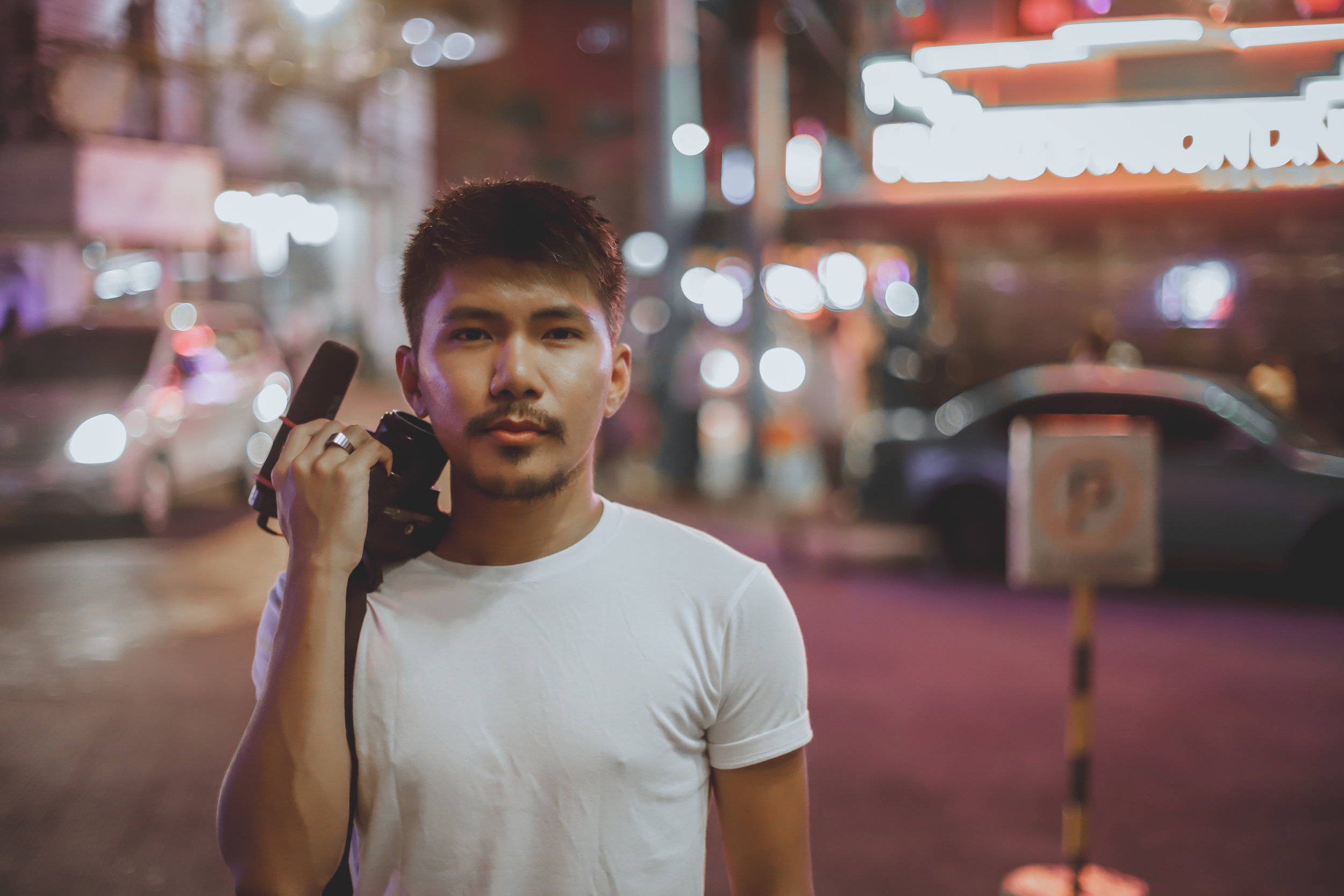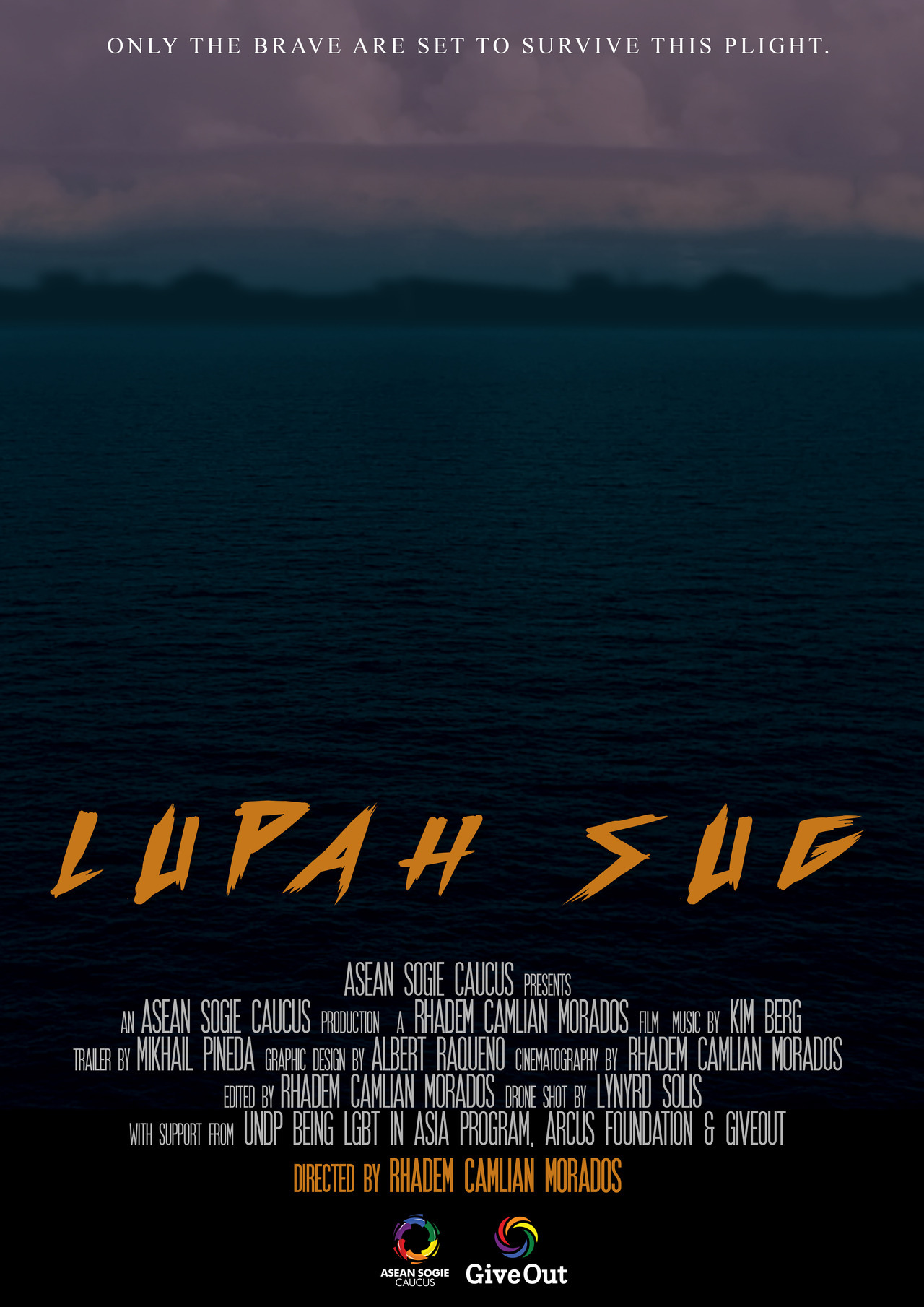Activist Spotlight: Rhadem Morados
Rhadem Morados is a gay Filipino activist filmmaker from Zamboanga City, Mindanao. He is a Muslim and his activism centres on bringing together Muslim and LGBTQI communities and encouraging understanding, tolerance and peace.
Rhadem is the creator and director of Lupah Sug, a 2018 film interviewing and documenting the lives of LGBTQI Muslims in Mindanao. Their stories detail their experiences being LGBTQI and Bangsamoro, a heterogeneous ethno-linguistic group of Muslim persons from Southern Philippines who have long struggled for the right to self-determination. Their narratives reflect how ‘only the brave are set to survive this plight’.
GiveOut is proud to support the creation of the film through ASEAN SOGIE Caucus.
GiveOut’s Callum Jackson interviewed Rhadem on his activism.
You’re originally from the Mindanao province in southern Philippines. What is the situation there like for LGBTQI people?
I am very privileged to be
openly gay and Muslim.
Mindanao is a mainly Muslim area but LGBTQI Muslims in Mindanao don’t really make up a community. Most are in the closet, and don’t speak out about their LGBTQI identity. Being part of that community is still a taboo and people are still being harassed in public and are afraid of becoming the victims of violence. Religion and mainstream straight culture create a sense of internal homophobia within LGBTQI Muslims. They begin to accept their fate; that is, that they are never going to have a family, are going to hell, and will be punished by God. Toxic masculinity within Muslim society in the Philippines promotes this homophobia. Marriages are even arranged to try to ‘turn’ lesbians straight! The international community and global political mechanisms aren’t doing anything to change attitudes or prevent violence because human rights violations are never reported, and because the Philippines has its own view of what ‘human rights’ should be.
One of the ways you’re helping to combat this stigma is through organised activism. For example, you were part of the team that helped organise the first Mindanao Pride. What was that like?
The Pride was a huge success and the parade itself was incredible. We had around 2,000 people marching. Public officials turned up, some championing the anti-discrimination bill in parliament. At Pride, we also organised a week-long event, screening LGBTQI films in cinemas, teaching community members and allies on how we can use the existing laws and bureaucracy to protect ourselves when being harassed, in a programme called ‘Rainbow Paralegal’. These lectures also covered international law and how that can help the community. We used Pride to tap into existing groups – for example, youth groups campaigning on environment issues – and teach them about SOGIE [sexual orientation, gender identity and expression] issues so they can incorporate them into their advocacy.
In January 2019, a plebiscite was held in the Muslim-majority southern region of the country, in which the Bangsamoro Autonomous Region in Muslim Mindanao, an area with devolved parliamentary powers and its own unique ethnic identity, was established. Rhadem’s maternal uncle is the head of a group of Muslim rebels who negotiated with the government for peace and for this landmark referendum. Whilst this move means greater independence for an ethnically distinct and culturally cohesive region, it may also foreshadow harder times ahead for the LGBTQI community. “Yes, there will be peace, but Sharia will become even more powerful,” warns Rhadem.
Was this potential future backlash the motivation for your recent documentary, Lupah Sug (‘Land of the Brave’)?
Exactly. I wanted to make a film about ordinary LGBTQI Muslims in Mindanao, to show leaders and members of the public that queer Muslim Filipinos can be happy, successful and productive members of society. The aim is to fight back against the increased risk of stronger Islamic nationalism in Mindanao. My main intention is awareness, highlighting participants’ ambitions, contributions and struggles, which is so important. Queer Muslim people are so often hidden in the wider LGBTQI community. I wanted the film to be optimistic, not pessimistic. I am very privileged to be openly gay and Muslim, and I want to share that.
Visibility builds awareness.
And awareness leads to tolerance.
Rhadem often teams up on projects with the ASEAN SOGIE Caucus, the foremost regional membership and advocacy organisation campaigning for LGBTQI human rights in Southeast Asia. But even despite his links to wider activist networks, Rhadem describes himself as a “lone ranger with a rebel heart” in the Filipino LGBTQI movement. The queer Muslim community on the island of Mindanao is small, but smaller still is the number of LGBTQI Muslims in the Philippines campaigning for equality and dignity for their communities. Rhadem, like many of his fellow human rights campaigners, has received hate messages, threats of violence and death threats, and these only increased following his organising of Mindanao Pride 2018.
Tell us about your own personal coming out experience. Did it shape your activism?
I was lucky enough not to have grown up in poor family. One of my grandfathers is an imam and sheikh, the other grandfather manages the hajj – the annual Muslim pilgrimage to Mecca. My father is a high-ranking peace and security official and my mother’s siblings are in Congress. With that comes a certain amount of privilege, but it doesn’t make being gay any easier. I realised I was gay in second year of college and although I knew my family wouldn’t be accepting, I felt I needed to come out. Hence, the ‘rebel heart’! I came out after finishing college and my family told me to leave. But after five years of separation, my family approached me to reconcile. They had had the wrong idea the whole time: that being gay makes you miserable. But they saw that I was thriving, which challenged their assumptions.
What is the message you want to share through your activism?
Muslim conservatives are not happy with the message I am sending, because they don’t understand it. I am not claiming that being LGBTQI is accepted in the teachings of Islam – that would be factually inaccurate. My message is that, even if customs and traditions preach negatively about being LGBTQI, Muslims should practise tolerance, respect and acceptance. That means understanding that members of your community can be different from you, and coming to terms with that. That is why I used the hashtag #AllahLovesEquality at Mindanao Pride: to promote a stronger, united front across the movement.
How do we achieve greater acceptance?
It boils down to whether or not the political leaders decide to implement discriminatory laws, which the police must enforce. However, it takes activists to lobby those politicians and decision-makers, to change their minds and give them a reason not to back discrimination. Visibility builds awareness. And awareness leads to tolerance.
What about businesses in the Philippines? Can they help to move the needle?
I know maybe around four corporations that are very supportive of LGBTQI equality in the Philippines. Although there is still homophobia in the business sector, there are corporates who are helping to educate people about diversity and equality. But when you reach out to these corporates, they are not interested. They tokenise, instead of using their powerful position with the government to provide actual, tangible support. That is what needs to change in the business sector here and all around the world.
Rhadem’s work with HIV organisations in the Philippines, curating creative campaigns to raising awareness, is another central part of his activism. HIV is on the rise amongst “those with Muslim names”, but is an issue largely ignored by Muslim community leaders.
Education is the major block. Members of the Muslim community think HIV is just for gays, and that – because there are no gay Muslims, according to them – the HIV/AIDS epidemic will not and does not affect Muslims, which of course is ridiculous.
Alongside his out-in-the-open activism, his role as an advocate for queer Muslims in Mindanao and his work with the HIV+ community, Rhadem also finds time to work as Communications Officer for organisations involved in the peace process and peace education in Philippines, going into schools and public institutions to bring about reconciliation and encourage dialogue. This, in the context of the civil war that has raged between the communist New People’s Army, the armed wing of the Communist Party, and the Filipino government since 1969.
President Rodrigo Duterte, the populist Filipino head of state responsible for the violent quashing of communist insurgents, is also native to Rhadem’s home-island of Mindanao but each represents an opposing end of the political spectrum.
During the election, he and his team heavily tapped into and tokenised the LGBTQI community, making promises just to get the LGBTQI votes. When he became president, he took back all his promises. Politicians frequently use the struggles and emotions of the LGBTQI community to win seats in the government, only to turn them away after winning.
This opposition – between the old guard and Mindanao’s young activists – reflects the attitudinal shift from generation to generation, with more progressive, tolerant mindsets emerging amongst young Filipinos, even in the country’s most conservative regions.
This younger generation are set to be the champions of peace, tolerance and – eventually – equality, with activists like Rhadem leading the way.
OUTSPOKEN: the philippines’ first LGBTQI talk show
You can watch the entire OUTSPOKEN series here. Created by Rhadem Morados, OUTSPOKEN is supported by GiveOut under The Suki Sandhu LGBTQI Asia Fund through The ASEAN SOGIE Caucus, and in partnership with TEAM Magazine.
GiveOut | 3rd Floor | Thomas Ford House | 23-24 Smithfield Street London | EC1A 9LF
GiveOut is a charity registered in the UK with the Charity Commission for England and Wales (Registered Charity Number 1176434).





